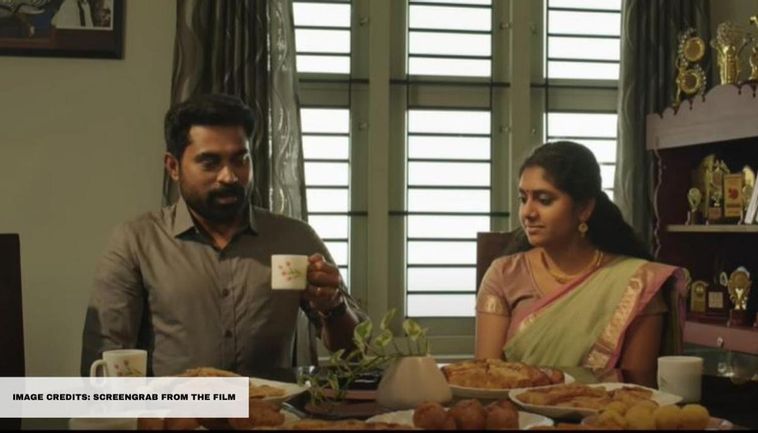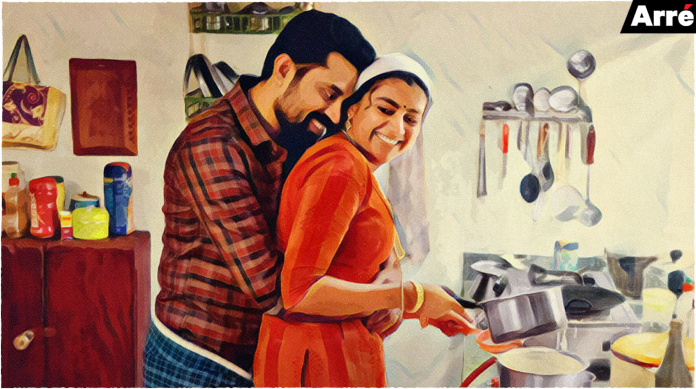Much has been said about the new Malayalam movie the Great Indian kitchen. It’s no doubt that it has been an eye opener for many. The depth of the traditional patriarchal practice was new to me nevertheless like every malayali I have also witnessed some of the sexism at various levels in different places. Thankfully I havent had a direct experience of this but do feel for women who have been and are still subjected to this rather pitiful social system. If you have not watched the movie parts of this contain Spoiler alert.
The movie starts with a traditional wedding ceremony followed by the bride taken to the grooms place. The very next day she is expected to cater to the needs of her husband and the father in law from dawn to dusk .The men are seen relaxing in the armchair reading a newspaper waiting for their morning“hot” tea. Women on the other hand toil away in the kitchen like robots doing the elaborate meal preparation followed by sweeping and moping the house along many other household chores.

Thanks to the superstitious belief that still haunts women in
India – menstruating women are “impure” and during these times women are prohibited from entering the kitchen and cooking food, expected to stay out of the household usually in a shed as they are considered dirty therefore cannot be touched along with many other associated beliefs . She was hence banned from the kitchen for the week. I must say I was pleased to see that she did not have to do the laborious monotonous household chores during these day, but to my dismay she was asked to lock herself up in a room as she was too scared to move out to the nearby shed. 0ne can only imagine the negative psychological impact this could have on the woman.
Its interesting to note that the groom’s family were polite to her. They never abused her in anyways. There was a scene in the movie where she made rice in the pressure cooker and the father in law calmly asked her to make just the rice in the traditional addippu. Another scene where she was loading the washing machine the father in law again very politely asked that his clothes be hand washed as the machine wash would spoil his clothes! After all women are machines!
Over years the negative stereotypes in the culture have been accepted and endorsed by women. She wanted to work as a dance teacher which was politely declined yet again by the man of the house- the father in law explaining gently that the place for the woman is in the kitchen. Her mother in law, a graduate was also advised by her then father in law to do the same. Feeling let down she turned to her husband for support who simply asked her to wait for a bit as though he was scared to go against his father’s advice. Feeling hopeless with the cultural norms she was subjected to, she turned to her own mother for support who was no different. After all she has been married off to a “respectable” family.
What offended me the most was the lack of “manners” in the men to leave their food waste on the dinner table. We later see that it was in fact not lack of knowledge but woman being taken for granted as he was quite happy to put the waste in a plate in a restaurant. So is this lack of awareness or just turning a blind eye to the women’s needs more like a wilful ignorance?
There was a clear lack of respect and acknowledgment of what the poor daughter in law and mother were going through every day in the kitchen. It was as though it is all “expected” of a woman. Needless to say, women are still treated this way in a lot of places in spite of their education and earnings. Working women are also expected to do their“wifely”duties prior to going to work.
The movie was too much even for AmazonPrime and Netflix to comprehend at this age and time but only an Indian streaming site like Neestream could make true sense of the reality this has in the Indian society.


